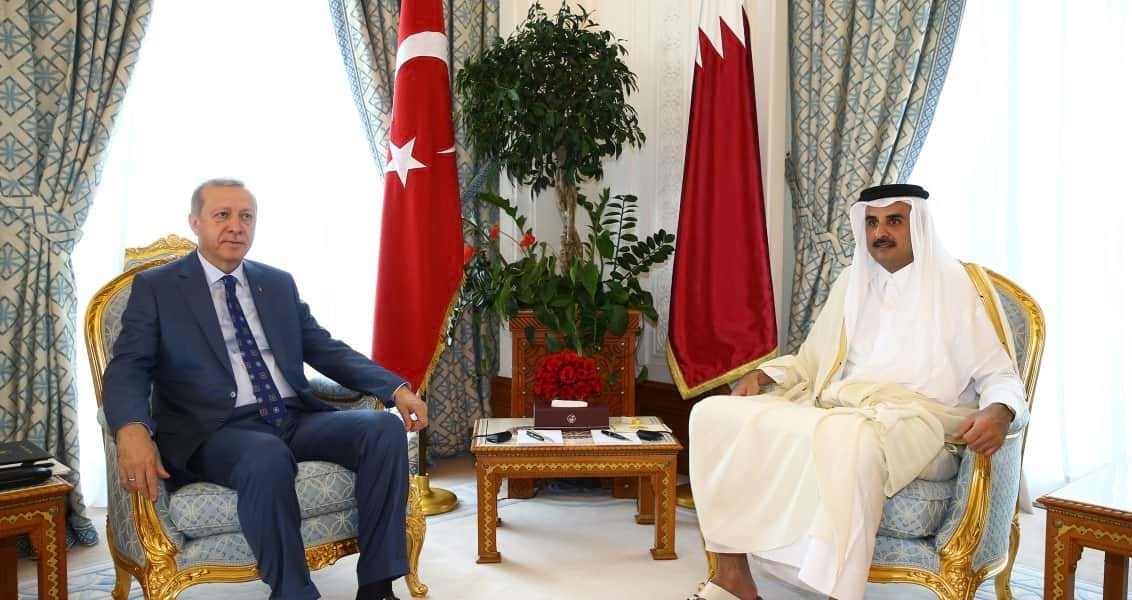
Regional Volatility Increases Demand for Turkey's Stabilizing Role
Turkey's stabilizing role as a functioning democracy and strong market economy will be in higher demand in the coming months
Share
The flow of history seems to have accelerated again in the Middle East over the course of recent months, but, unfortunately, the overall direction of this flow is worrying for many. Not a single day passes without critical news hitting the news agencies concerning the unfolding of a local or regional crisis, a major terrorist attack, humanitarian tragedy or diplomatic or physical conflict. Especially in the aftermath of the visit by U.S. President Donald Trump, there is a growing feeling that a perfect storm is looming on the horizon through which most of the established power parameters, political elites, alliance formations and interest configurations will face a dramatic transformation. Recently, there have been several critical developments that gave early warning signals of forthcoming tumultuous changes that might unfold, starting from the crisis in the Gulf around Qatar.
As expressed by President Recep Tayyip Erdoğan, the kind of response given to Qatar by its neighbors was unjustified and disproportionate and carries the risk of escalating tensions further. Even the U.S. administration backtracked from its accusations of Qatar, saying that initial claims of the emirate supporting extremism and terrorism are not supported with concrete evidence. As the diplomatic and economic isolation around Qatar continues, several conditions, the fulfillment of which was required for normalization of relations, were published in the global media. Expectedly, some of these conditions related to the cessation of support and alleged links to groups such as the Muslim Brotherhood and Hamas. But some others were directly aimed at curtailing Qatar's national sovereignty and foreign policy autonomy by demanding to sever diplomatic relations with Iran and military cooperation with Turkey as well as closing down its effective Al-Jazeera news network. An imminent rejection of some of these claims is very likely to escalate tensions in the Gulf.
A crucial but widely expected development was the appointment of Deputy Crown Prince Muhammad bin Salman as crown prince by King Salman bin Abdulaziz in Saudi Arabia to replace Muhammed bin Nayef. Many international observers interpreted this development as an indication of a tougher stance toward Iran on the part of the kingdom and predicted an intensification of proxy, or even direct, conflicts among the two major regional actors. At a time when there is already a series of proxy wars raging in failed states such as Syria, Yemen and Libya, hardening positions on both sides are feared to fuel tensions. It must also be said that the prospects of open conflict between Saudi Arabia and Iran would not benefit any regional actor, but rather play into the hands of those forces that constantly endanger endemic instability in the Middle East, i.e., the U.S. and Israel. Heightened polarization and an imminent threat of war between regional countries would create a lose-lose situation for all. That is why crucial regional players such as Turkey are making illustrious efforts to reduce pressure through regional shuttle diplomacy.
President Erdoğan clarified Turkey's position on the Qatari crisis from its inception and said that a regional quarantine against a Muslim state in the month of Ramadan is totally unacceptable. Since then, he has been in constant contact with the chief parties to the conflict, the Saudi king and Qatari emir, to mediate an amicable solution. He also sent Foreign Minister Mevlüt Çavuşoğlu to conduct shuttle diplomacy and deliver his message to King Salman that he was expected to solve the crisis in "a manner conducive with his status as the ‘Servant of the Two Holy Mosques'." Through this, Turkey has had a balanced attitude during the crisis in an attempt to maintain effective dialogue with both sides, but has not refrained from indicating strategic support for Qatar by dispatching troops to its new military base there.
The final event that raised tensions and necessitated a clear response from Turkey was a hasty declaration from the president of Kurdistan Regional Government (KRG) in northern Iraq, Masoud Barzani. Barzani declared that a referendum on full independence for Iraqi Kurdistan on Sept. 25 cannot be scrapped or delayed and threatened that any unilateral action to halt it would cause a massive bloodbath in the region. Grave problems that the Kurds in Iraq experienced with the central administration in Baghdad are known, but this kind of provocative language is obviously the last thing that we need in an already volatile region. As a stabilizing force in the midst of multiple regional conflicts, Turkey has been trying to discourage Barzani from taking such a unilateral and uncompromising step. Ankara's stance on Iraq has always been based on supporting a unified, national structure and there are concerns that the post-referendum process might trigger new conflicts on Turkey's borders.
Taken together, all of these developments point toward an edgier phase with more conflict in regional politics. Turkey's stabilizing role as a functioning democracy and strong market economy will be in higher demand in the coming months.
[Daily Sabah, June 23, 2017]
Tags »
Related Articles





